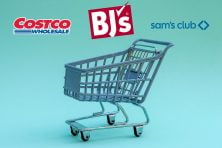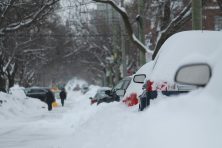Where to Get Free or Low‑Cost Mammograms—Even Without Insurance

One of the best ways to stop breast cancer in its tracks is early detection.
Though every woman should do breast self-exams each month, women over 40 are advised to get a mammogram every one to two years. If you’re younger than 40 but have risk factors for breast cancer, you might need a mammogram, too; ask for your doctor’s recommendation.
But whatever your age, don’t avoid mammograms because of their cost.
Why Mammograms Are Crucial—and Often Costly
Low-dose X-rays of breast tissue, mammograms are an essential breast cancer screening and diagnostic tool. They can detect changes that could lead to breast cancer before symptoms have appeared.
And early detection is invaluable — one in eight women will be diagnosed with breast cancer in her lifetime, statistics show. According to the American Cancer Society, about 316,950 new cases of invasive breast cancer will be diagnosed in women this year, and 42,170 women will die from breast cancer.
But mammograms can get expensive. Without insurance, a regular 2D screening mammogram can range from under $200 to over $300. Advanced scans are even more expensive.
However, there are federal programs, nonprofit organizations and local clinics that help provide free mammograms near you, as well as low-cost options for those who qualify.

Federal Programs Offering Free or Low-Cost Screening
In many cases, insurance will cover mammograms. If you’re 40 or older, the Affordable Care Act requires your insurer to cover screening mammograms every two years with no co-payment. Medicare and Medicaid also cover the cost of mammograms.
Another option for free or low-cost mammograms is the CDC’s National Breast and Cervical Cancer Control Program, which “provides breast and cervical cancer screenings and diagnostic services to low-income, uninsured and underinsured women across the United States.”
To qualify for this screening, you should be between the ages of 40 and 64, have no insurance or insurance that fails to cover screening exams, and live at or below 250% of the federal poverty level.
Nonprofit and Foundation Grants That Help Cover Costs
Outside of insurance and federal programs, some nonprofits offer free breast cancer screenings:
The National Breast Cancer Foundation
The National Breast Cancer Foundation partners “with medical facilities across the country to provide free mammograms and diagnostic breast care services to underserved women.” click here to search for a location near you.
The Susan G. Komen Foundation
The Susan G. Komen Foundation has affiliates in 120 American cities. According to its website, its affiliate network “is the nation’s largest private funder of community-based breast health education and breast cancer screening and treatment programs.”
To learn what resources are available in your area, search for your local affiliate here. Prefer to speak to someone? Call the organization’s breast care helpline at 1-877-GO-KOMEN (1-877-465-6636), and the representatives will help you find low-cost options in your area.
YWCA
Some YWCA chapters, through their ENCOREplus programs, provide breast cancer screening and education to women who have no insurance or who are underinsured. Contact your local YWCA to see if it offers affordable mammograms.

State and Local Clinics Offering Breast Cancer Screening
You may find local or state mammogram programs in your area, many of which provide free or sliding-scale mammograms based on income. Charities, hospitals and imaging centers also offer reduced rates during October, which is Breast Cancer Awareness Month.
To find mammogram programs for low-income earners in your area, check your state’s health department website, search online for “free mammograms near me,” find a local mammography center on the FDA website or call your local United Way helpline — dial 211.
Mobile Van Programs and Community Outreach Events
Mobile mammography vans travel to rural and underserved communities, offering free breast cancer screening. These units frequent community centers and events like health fairs and even offer services at churches.
To find a mobile mammography event, check with local providers or your state’s health department and/or its NBCCEDP program. Keep an eye on Susan G. Komen events, too. You can also search “mobile mammograms” and find stops near you.
What to Ask Before You Show Up
For more information about mammograms, consult this PDF from the Susan G. Komen foundation. And before scheduling a free or low-cost breast cancer screening, you should ask a few questions.
- Do I need an appointment?
- Do I need proof of income?
- What should I bring to my appointment?
- What are the next steps if my mammogram comes back abnormal?
- Do you do diagnostic follow-ups?
Final Thoughts: Don’t Skip Breast Cancer Screening
Mammograms and breast cancer screening are crucial for detecting cancer early, when it’s most treatable. But they can also be expensive.
If mammogram costs feel like a barrier, local, state, federal and nonprofit programs offer low-cost mammograms, especially during Breast Cancer Awareness Month in October.
FAQs About Free Mammograms
Eligibility usually depends on age (often 40+), income level and insurance status. Some clinics may also offer free or low-cost screening to younger women with risk factors.
Not always. While screening may be covered, diagnostic tests like ultrasounds or biopsies may cost extra. Always ask about follow-up fees in advance.
Wait times vary. Some clinics offer same-day appointments, while community events or mobile units may require advance booking.
Yes—some programs are gender-inclusive. Check with your local clinic or NBCCEDP office to confirm eligibility.












